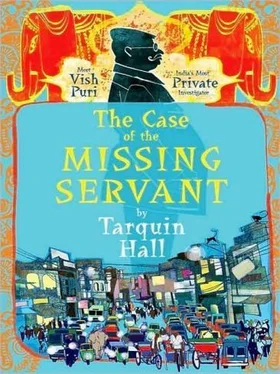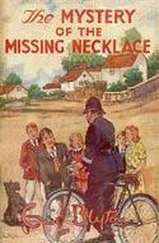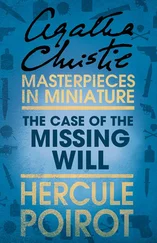Tarquin Hall - The Case of the Missing Servant
Здесь есть возможность читать онлайн «Tarquin Hall - The Case of the Missing Servant» весь текст электронной книги совершенно бесплатно (целиком полную версию без сокращений). В некоторых случаях можно слушать аудио, скачать через торрент в формате fb2 и присутствует краткое содержание. Год выпуска: 2009, ISBN: 2009, Издательство: Simon & Schuster, Жанр: Детектив, на английском языке. Описание произведения, (предисловие) а так же отзывы посетителей доступны на портале библиотеки ЛибКат.
- Название:The Case of the Missing Servant
- Автор:
- Издательство:Simon & Schuster
- Жанр:
- Год:2009
- ISBN:978-1-4165-8402-5
- Рейтинг книги:3 / 5. Голосов: 1
-
Избранное:Добавить в избранное
- Отзывы:
-
Ваша оценка:
- 60
- 1
- 2
- 3
- 4
- 5
The Case of the Missing Servant: краткое содержание, описание и аннотация
Предлагаем к чтению аннотацию, описание, краткое содержание или предисловие (зависит от того, что написал сам автор книги «The Case of the Missing Servant»). Если вы не нашли необходимую информацию о книге — напишите в комментариях, мы постараемся отыскать её.
The Case of the Missing Servant — читать онлайн бесплатно полную книгу (весь текст) целиком
Ниже представлен текст книги, разбитый по страницам. Система сохранения места последней прочитанной страницы, позволяет с удобством читать онлайн бесплатно книгу «The Case of the Missing Servant», без необходимости каждый раз заново искать на чём Вы остановились. Поставьте закладку, и сможете в любой момент перейти на страницу, на которой закончили чтение.
Интервал:
Закладка:
"Thanks Savitri. Savitri Ramanand there reporting live from the scene of the arrest of Jaipur High Court lawyer Ajay Kasliwal. We'll be bringing you more on the Maidservant Murder throughout the day. In the meantime let us know what you think. Email us at the usual address on the screen. We want to hear from you.
"Next, the latest on Team India's triumph in the second test. We'll be back after these messages. Don't go away."
Film star Shahrukh Khan then appeared on the screen, endorsing Fair and Handsome, one of the dozen or so different products he was currently advertising, and Puri, who had unconsciously been grinding his molars for the past five minutes, told the waiter to switch off the TV.
Soon, the detective was enjoying his parantha and a fresh bowl of curd.
He was almost finished when his private phone rang. It was Professor Rajesh Kumar at Delhi University calling.
"Hello, sir! Haan-ji, sir! Tell me!" bellowed the detective.
The pleasantries over, Professor Kumar informed Puri that he'd got the test results back on the stones from Mary's room.
"There's something most unusual about them," he said. "Where did they come from?"
"Jaipur, sir," Puri told him.
"That's most peculiar," said the professor. "We found unusually high traces of uranium."
"Did you say uranium?" asked Puri.
"Yes, Chubby, that is exactly what I said."
Fourteen
The Jaipur police station where Ajay Kasliwal was being held was depressingly typical. The building was a concrete square, two floors high with steel supports jutting out of the roof in case a third floor was ever required.
Red geraniums spilled onto the well-swept pathway but did little to soften its charmless architecture. Puri wondered how people elsewhere in the world could view police stations as sanctuaries. For Indians, they were lions' dens.
Seeing a well-fed man in a smart grey safari suit, polished leather shoes and a Sandown cap, the duty officer immediately stood up from his chair, looking as alert as if the prime minister himself was making an impromptu visit.
"How may I be of assistance?" he asked in Hindi with a convivial jiggle of the head.
Puri explained his credentials and his purpose for visiting the station: he wanted to see Ajay Kasliwal.
The duty officer took the detective's card and explained that he needed to refer the matter to his "senior," who was in the next room.
A few minutes later the officer in question entered.
"It will be our pleasure to help you in any way. Some cold drink? Some tea?" he asked.
For the sake of diplomacy, Puri sat with the police-wallah for ten minutes, dropping a few names into the conversation and leaving him in no doubt that he was someone with contacts at the pinnacle of power in Delhi. The detective also complimented the officer on the tidy appearance of the station.
"Our Indian police are most cooperative," he said, in a deliberately loud voice with a grin.
Such flattery always went down well. "Thank you, thank you, so kind of you, sir." The officer beamed.
A stern-looking woman constable escorted Puri to the cells.
They were at the back of the station, three in total, each twelve-feet square with a squat toilet positioned behind a low concrete wall that offered little privacy. There were no windows and no ventilation of any kind. The stench of sweat, piss and acrid bidi smoke hung heavily in the air. The bars and the doors were antiquated and the clunky locks required six-inch keys, which jingled from the constable's belt like reindeer bells.
The first cell contained seven prisoners. They were racing captured cockroaches across the floor on a course delineated by empty cigarette boxes. Crouching over the contenders, the prisoners' voices alternated between cheers of encouragement, howls of disappointment and whoops of victory.
At the back of the second cell, a half-naked sadhu with dreadlocks sat in apparent comfort on the hard concrete floor, while two old men with long white beards passed the time over a game of cards. Another man with a cadaverous appearance leaned up against the bars, staring through them with a blank, melancholy expression.
Ajay Kasliwal had the last cell to himself. It was devoid of furniture and proper lighting. He was sitting in the semidarkness against the back wall with his face buried in his hands.
When he looked up, Puri was shocked to see how exhausted he appeared. Deep creases had developed along his forehead. Bags the color of storm clouds had gathered beneath his eyes.
"Thank God!" he exclaimed. Standing up, he rushed to the front of the cell and clasped the detective's hands. "Thank you for coming, Puri-ji! I'm going out of my mind!"
For a moment, it seemed as if the lawyer would break down in tears, but he managed to regain his composure.
"I tell you, I never laid a finger on that poor girl," he said, his grip still tight. "You do believe me, don't you, Puri-ji? These charges are bogus. I'm a gentle giant, actually. Ask anyone and they'll tell you the same. Ajay Kasliwal could not and would not hurt a fly. I'm a Jain, for heaven's sake! We people don't like to kill anything, not even insects."
The lady constable, who had been standing behind Puri, interrupted. "Ten minutes only," she said coldly and withdrew farther down the corridor.
"Of course I believe you, sir," said the detective. "One way or other, we'll get you out of this pickle. You have Vish Puri's word on that."
He let go of Kasliwal's hands and reached into his trouser pockets, taking out a packet of Gold Flake cigarettes.
"These are for you," he said, passing them through the bars.
Kasliwal thanked him, tore into one of the packets and, with trembling hands and fumbling fingers, put a cigarette to his lips. Puri lit a match and Kasliwal pushed the end of the cigarette into the flame. The detective surveyed his client's features in the flickering light, searching for clues to his mental state. He was concerned to see that he had developed a tic above his left eye. Such a spasm could be the first indicator of more serious problems to come. The detective had seen other men-confident, successful men like Kasliwal-reduced to blubbering wrecks after being put behind bars.
Ashok Sharma, the "Bra Raja," who had hired Puri to investigate the bizarre set of events that had led to the death of his brother (the Case of the Laughing Peacock), had suffered a nervous breakdown after spending just one night in Delhi's notorious Tihar jail.
Of course, Kasliwal's cell was positively five-star compared to Tihar. But tomorrow morning, he had a date in front of a magistrate at the District and Sessions Court, where he would be charge sheeted. And if bail was denied-and in the case of a "heinous crime" it often was-he would be remanded into judicial custody and sent to the Central Jail. There, Kasliwal would be forced to share a dormitory with twenty convicted men. If he wished to remain un molested, he would have to pay them protection money.
"The first thing I must know, sir, is who is representing you?" asked Puri.
"My wife was here two hours back and says K. P. Malhotra has agreed to take the case. I haven't talked to him yet; my mobile ran out. He's meant to come this afternoon."
"He's someone you trust?"
"Absolutely. We've known each other for twenty-odd years. He's a good attacker and adept at defending his wicket, also."
"Badiya-that's good to hear," said Puri. "But, sir, if I'm to continue, there can be no other private detective. It will make things too hot in the kitchen."
Kasliwal stole a furtive glance at him; Puri guessed that the lawyer's wife had already sown the seeds of doubt about the detective's abilities.
"You're not satisfied with my work, is it?" he prompted.
Читать дальшеИнтервал:
Закладка:
Похожие книги на «The Case of the Missing Servant»
Представляем Вашему вниманию похожие книги на «The Case of the Missing Servant» списком для выбора. Мы отобрали схожую по названию и смыслу литературу в надежде предоставить читателям больше вариантов отыскать новые, интересные, ещё непрочитанные произведения.
Обсуждение, отзывы о книге «The Case of the Missing Servant» и просто собственные мнения читателей. Оставьте ваши комментарии, напишите, что Вы думаете о произведении, его смысле или главных героях. Укажите что конкретно понравилось, а что нет, и почему Вы так считаете.












